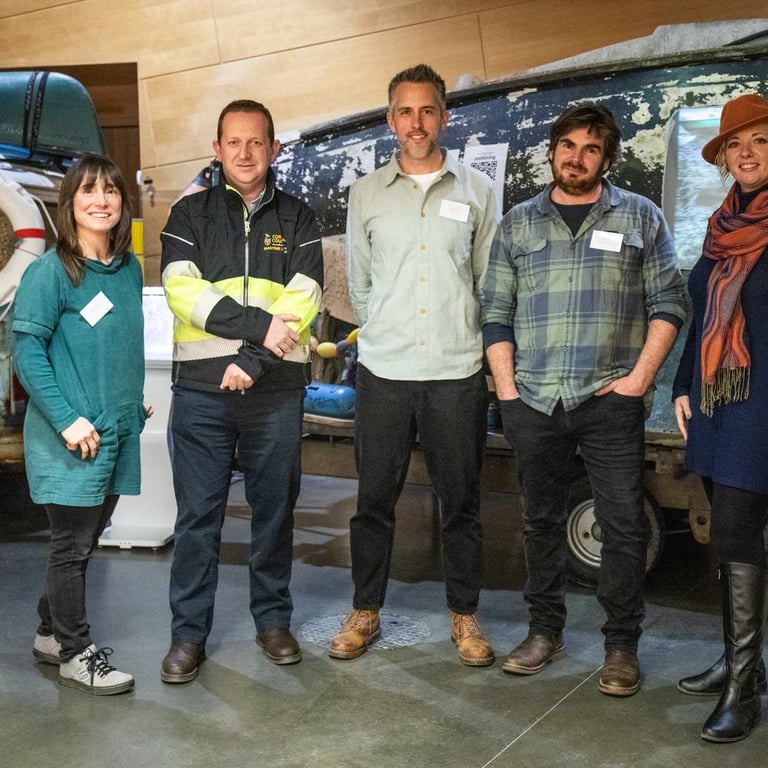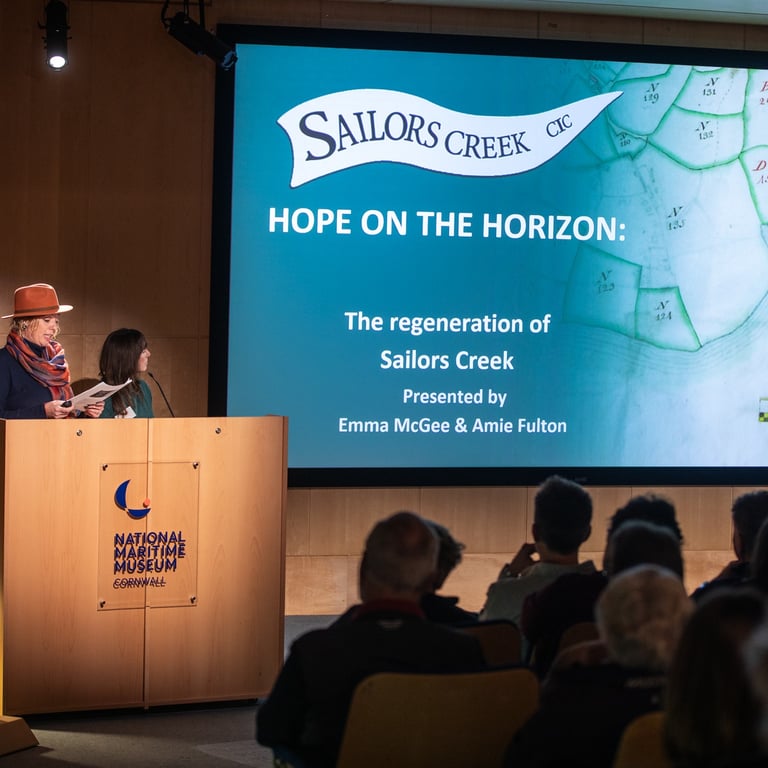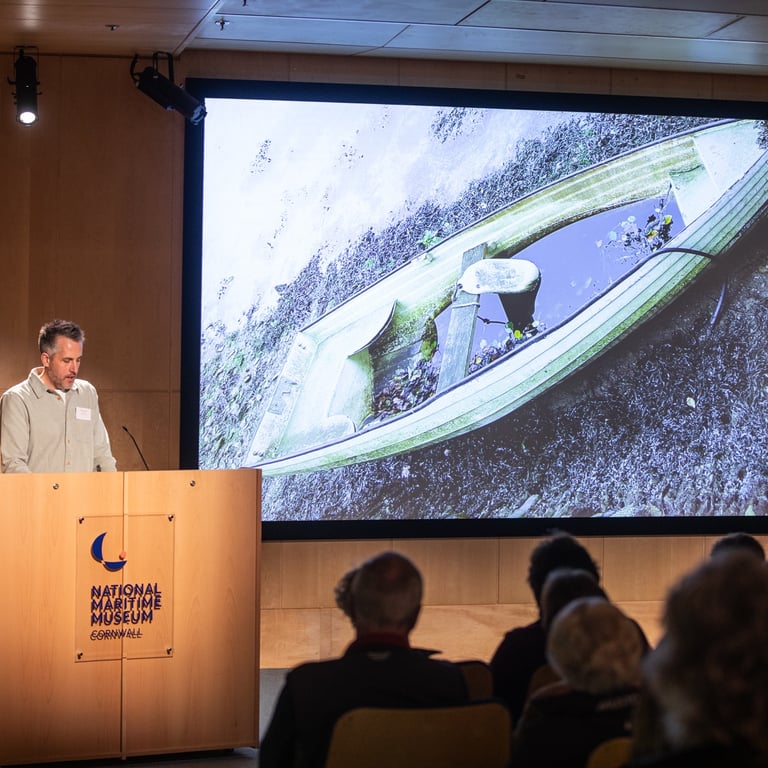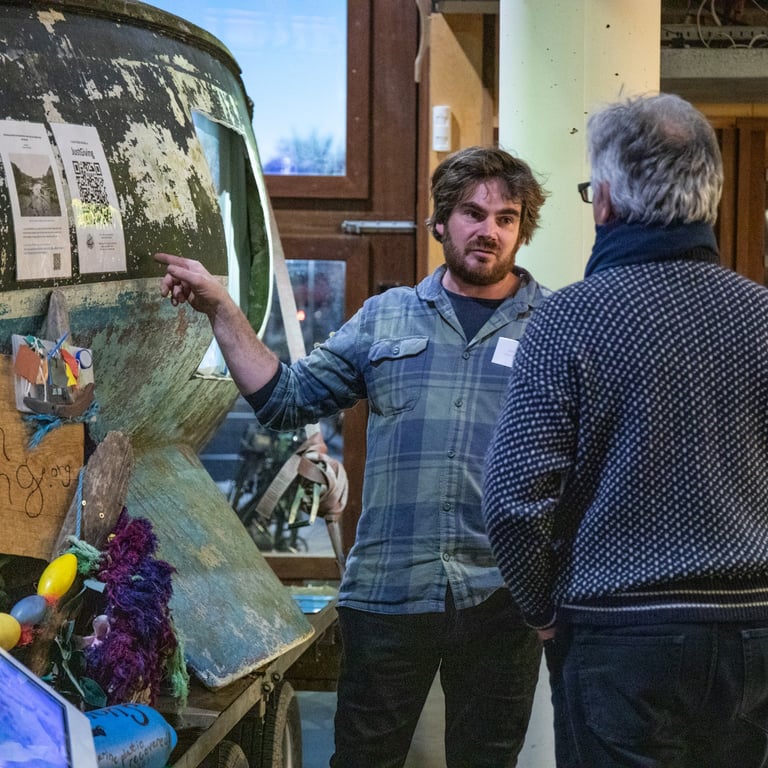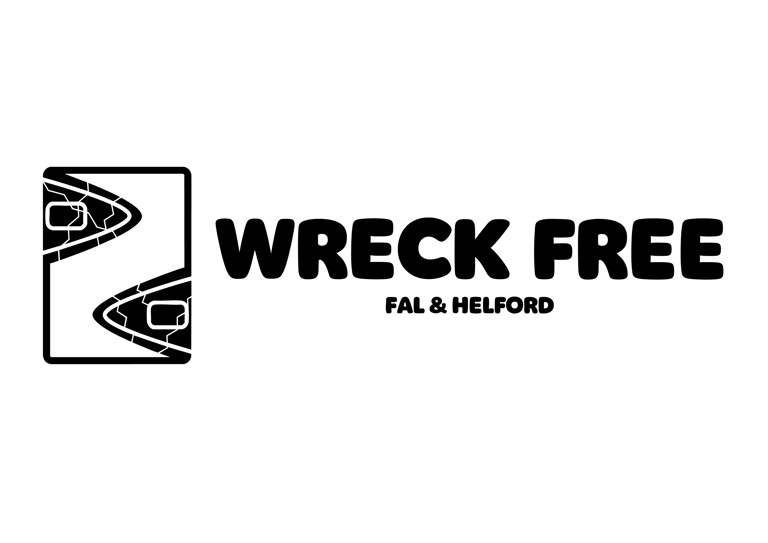100 stakeholders come together to discuss how to deal with end of life boats on the Fal and Helford
3/13/20255 min read
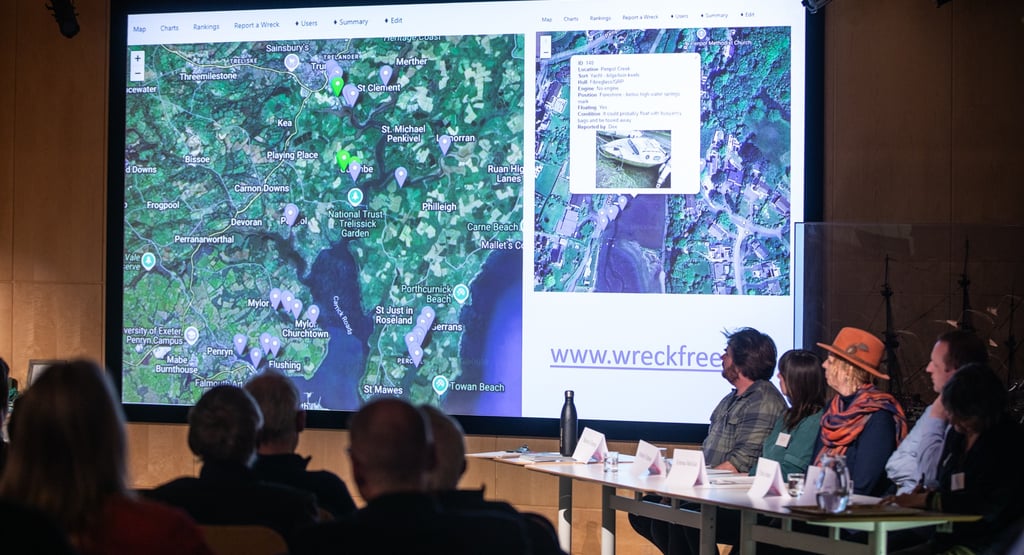

Around 100 stakeholders came together for the first meeting of the Wreck Free Fal and Helford forum, held in the theatre of the National Maritime Museum Cornwall on Friday 28th February. Attendees included water users, harbour authorities, yacht clubs, the RYA, boat yards, foreshore owners, moorings operators, statutory bodies, conservation groups, parish and Cornwall councillors and Truro and Falmouth MP Jayne Kirkham.
Attendees heard talks from: Clean Ocean Sailing who have been clearing small wrecks from the Fal and Helford foreshores with donation based funding; Sailors Creek CIC who have cleared over 57 tonnes of boat waste from Sailors Creek near Flushing and Cornwall Harbours Maritime Manager Chris Jones.
The evening was introduced by Fal sailor Jake Burnyeat who, as a boat owner concerned about our home waters, recognises this as a long-term problem not just locally, but nationally:
“When a car reaches the end of its life you can take it to a scrapyard, get paid a few hundred pounds, and it will get recycled. It costs a lot of money to dispose of a boat responsibly so sadly they often get left in the corner of a creek to die; leaking toxic paints, oils and microplastics into the ocean.”
“Wreck Free Fal and Helford have logged over 150 abandoned boats around the Fal and Helford so far via our online wreck map and database. Anyone can add a boat that appears to be abandoned. The map logs a photo, the location, size and type of vessel and safety and environmental hazards. There are still some key foreshore areas to log and there will be many more boats abandoned in gardens and boatyards. There are some big steel and wooden wrecks and number of small wooden boats but most of the boats mapped so far are small GRP yachts under 25 feet, small GRP leisure fishing boats and small punts and tenders. If you take out the steel and wooden boats our very rough estimate is we have logged around 100 tonnes of small GRP boats.”
“Most of the boats abandoned around our foreshores are from the 1970’s and 80’s. Boats have got bigger since then and production volumes increased, so what we see now is a sign of a bigger problem to come.”
“There are around 5,000 moorings on the Fal and Helford. None of those boats are going to live forever. At some point each of them will become too much for someone. A Defra report in 2023 cited an average of 2% of boats reach the end of their life each year. So at some point locally we could face a problem averaging around 100 boats a year, and that is just the Fal and Helford. So it is a question of how do we tackle this issue before it becomes too late?”
The inaugural Wreck Free Fal and Helford forum meeting identified three key issues:
Firstly, how to clean up the hundreds of abandoned end-of-life boats around the Fal and Helford estuaries.
Secondly, how to address the root cause and stop more boats being abandoned in the first place.
Thirdly, finding a viable means of recycling GRP and for manufacturers to use more sustainable materials for new boats.
Dealing with abandoned boats can be complicated and expensive. “Cornwall Harbours has powers under the Harbour Revision Order to remove and dispose of abandoned boats and recover the cost from the owner” says Cornwall Council Maritime Manager Chris Jones. “We have safely salvaged and scrapped 74 abandoned vessels since 2015 at a significant cost to Cornwall Harbours, which is self-funded by harbour revenues not by the tax payer. It would be a lot cheaper if we could deal with end of life boats before they get abandoned. The longer they are left to decay the more difficult and expensive they are to deal with.”
Attendees heard how France is successfully tackling the problem with 35 free at use scrappage yards around the coast where 11,000 end of life boats have been scrapped since 2019. France also has a national boat registration scheme. The scrappage scheme is paid for by a producer levy on new boats and an annual boat tax which also funds the French lifeboat service.
The French system works on the principle that the cost of disposal should be spread over the life of a boat, not left to the last owner who may not have the money to pay the cost of disposing of a boat responsibly. Free scrappage schemes provide a viable alternative to abandoning a boat. It costs around £500 per tonne to scrap a boat once delivered to a licensed yard such as Truro Recycling. However, the cost of salvaging an abandoned boat can be a lot more on top of that.
The forum discussed whether a free scrappage scheme for the Fal and Helford could be funded by a small charge on moorings fees. Could the Fal and Helford lead the way and implement something like the French system at a local level ahead of national policy change, which will take years?
Local sailor Peter Bentley tabled the idea that a small charge could go a long way to dealing with the problem. “There are around 5,000 moorings on the Fal and Helford. A charge of £20 per mooring would generate £100,000 a year which would go a long way to disposing of the smaller wrecks in the harbour.”
Collecting a moorings levy, however small, is complicated by the number of moorings operators, harbour authorities and landowners across the Fal and Helford. Introducing tougher deterrents to abandoning boats, which some attendees called for, faces similar problems.
These complexities highlight the need for forum to bring the different stakeholders together to work out how to solve the problem.
Cornwall Councillor and Portfolio holder for Environment and Climate Change Martyn Alvey said, “In the UK the unregulated freedom that leisure boating enjoys is a highly valued privilege, one that I like many in Cornwall benefit from. However, it’s clear that in increasing numbers, irresponsible boat owners are abusing this privilege by abandoning their unviable vessels on foreshores across the Duchy. This cannot be allowed to continue. I’m pleased that public and private stakeholders are now coming together to find ways to reverse this scourge. I recognise that this vexed issue is complex, hindered by a confusing array of statutory powers and responsibilities, both at a local and national level, this highlights the need for urgent action. This brilliant initiative has my full support.”
Chair of the Harbours Board Councillor Loic Rich said, “'This is a major issue for our Harbourmasters and maritime staff, as well as a major risk to the local ecology and wildlife. No one wants pollution like this in our harbour areas, but while I applaud this local initiative to find a local solution that everyone can support, we also need the national agencies to step up their enforcement under existing legislation, as well as Government to consider introducing tougher legislation to combat the increasing threat of abandoned vessels to our marine environment.'
Jayne Kirkham MP said, “This is a problem which is building into a real environmental issue. I am keen to work with local government, landowners and stakeholders on solutions for Cornwall and champion them at national government level.”
Wreck Free Fal and Helford are enormously grateful for support from Cornwall Community Foundation’s Marine Environment Fund, CRCC, the Duchy, the National Maritime Museum Cornwall and Restronguet Creek Society.
